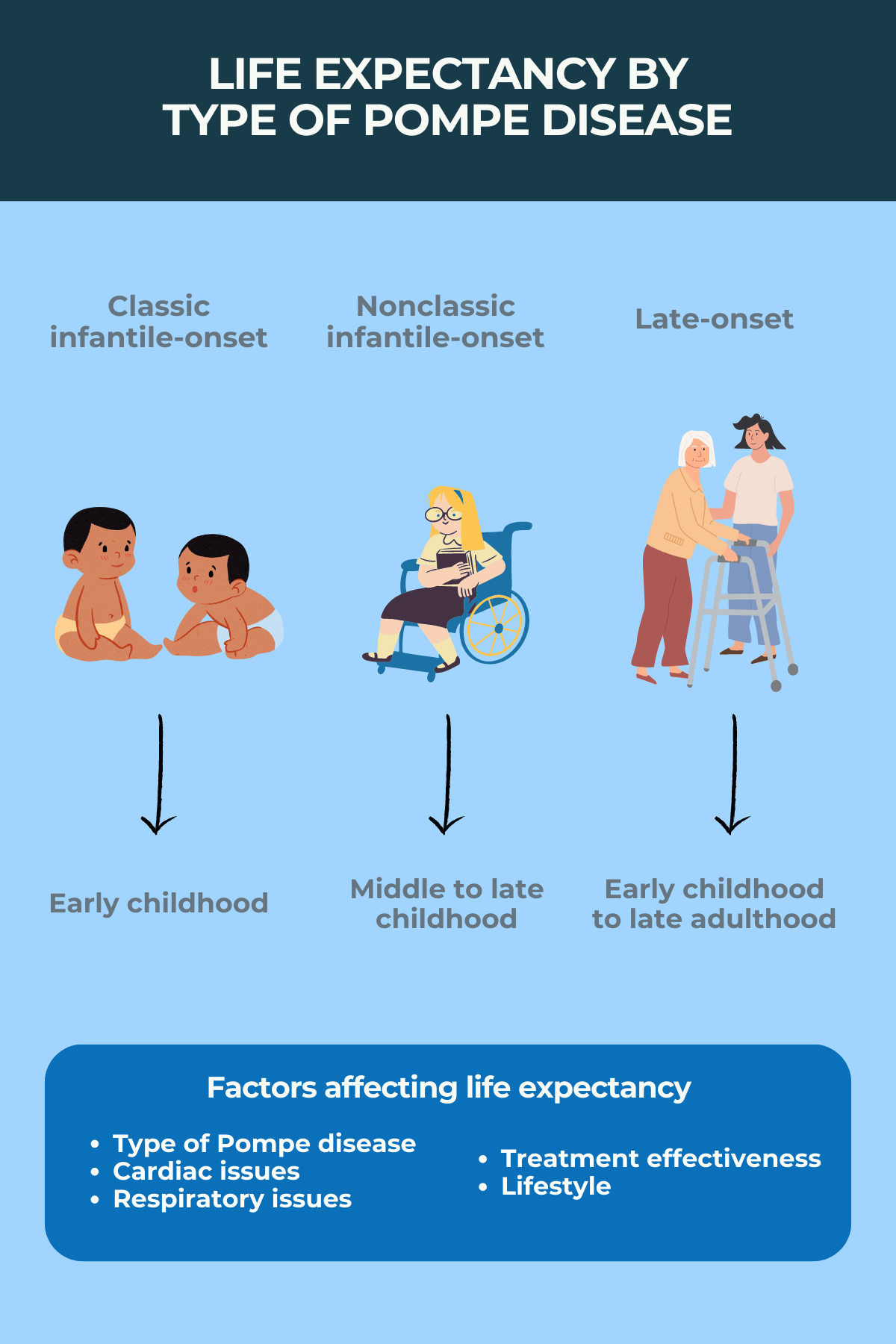 Discussion
Discussion
FAQs about Pompe disease life expectancy
Life expectancy depends on the type and severity of Pompe disease, and effectiveness of treatment. Those with classic infantile-onset have the shortest life expectancy, and those with late-onset Pompe disease have the longest.
The infant form of Pompe disease is usually fatal. The late-onset form of Pompe disease can shorten life expectancy, depending on how it progresses.
Without treatment, babies with classic infantile-onset Pompe disease typically don’t survive beyond the age of 2, and most children with the nonclassic type don’t live past early childhood. For people with late-onset Pompe disease, life expectancy can vary depending on the severity of disease-induced breathing problems.
Modifications to diet, light aerobic exercise under the direction of physical or occupational therapists, orthotics, and assistive devices are some lifestyle changes that can help manage the symptoms of Pompe disease.
The type of Pompe disease affects life expectancy, the severity of symptoms, and the effectiveness of treatment in slowing progression of the disease. Without treatment, most babies with classic infantile-onset Pompe disease do not survive past age 2, while some adults with the late-onset type do not receive a diagnosis until they are older than 50.
Related Articles
 Fact-checked by
Fact-checked by 


